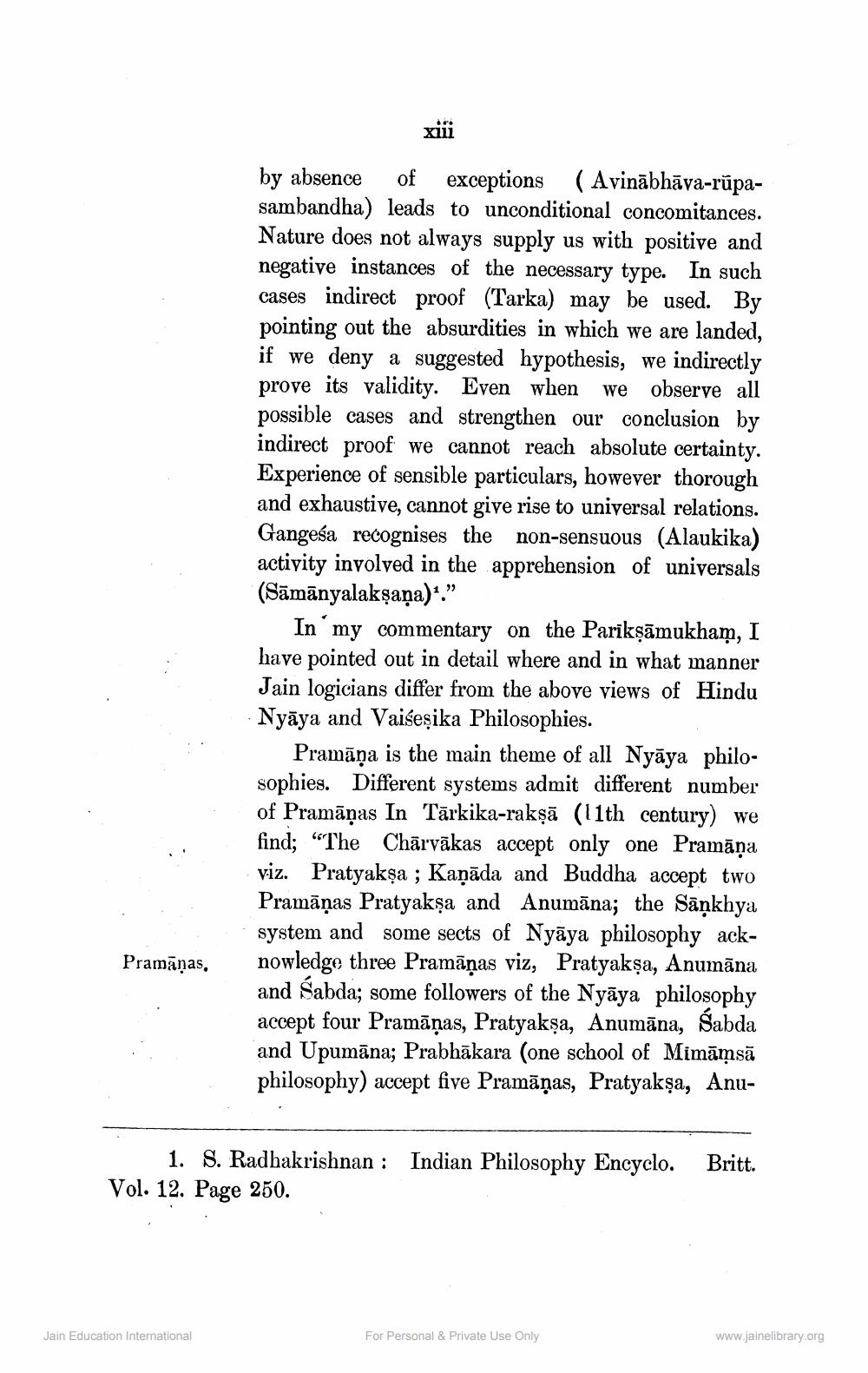________________
xii
by absence of exceptions (Avinābhāva-rupasambandha) leads to unconditional concomitances. Nature does not always supply us with positive and negative instances of the necessary type. In such cases indirect proof (Tarka) may be used. By pointing out the absurdities in which we are landed, if we deny a suggested hypothesis, we indirectly prove its validity. Even when we observe all possible cases and strengthen our conclusion by indirect proof we cannot reach absolute certainty. Experience of sensible particulars, however thorough and exhaustive, cannot give rise to universal relations. Gangesa recognises the non-sensuous (Alaukika) activity involved in the apprehension of universals (Sāmānyalakşaņa).."
In' my commentary on the Parīkņāmukham, I have pointed out in detail where and in what manner Jain logicians differ from the above views of Hindu Nyāya and Vaiseșika Philosophies.
Pramāṇa is the main theme of all Nyāya philosophies. Different systems admit different number of Pramāņas In Tārkika-rakṣā (11th century) we find; “The Chārvākas accept only one Pramāņa viz. Pratyakșa ; Kaņāda and Buddha accept two Pramāṇas Pratyakşa and Anumāna; the Sāņkhya system and some sects of Nyāya philosophy acknowledge three Pramāņas viz, Pratyakşa, Anumāna and Sabda; some followers of the Nyāya philosophy accept four Pramāņas, Pratyakşa, Anumāna, Šabda and Upumāna; Prabhākara (one school of Mimāṁsā philosophy) accept five Pramāņas, Pratyakşa, Anu
Pramāņas,
Britt.
1. S. Radhakrishnan : Indian Philosophy Encyclo. Vol. 12. Page 250.
Jain Education International
For Personal & Private Use Only
www.jainelibrary.org




